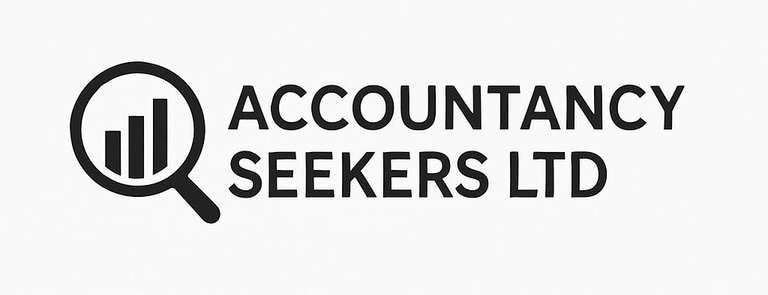Accounting for Creatives: What Freelancers Should Know
7/15/20252 min read


If you’re a creative freelancer—whether you're a designer, photographer, writer, videographer, or content creator—your talent is your business. But when it comes to managing your finances, things can get a little less inspiring. From irregular income to managing expenses and dealing with HMRC, understanding the basics of accounting is essential to keep your creative business running smoothly.
One of the first things every creative freelancer should do is register with HMRC. If you earn more than £1,000 in self-employed income during a tax year, you're legally required to register for Self Assessment and file a tax return. This is how HMRC calculates what you owe in income tax and National Insurance. Registering early and keeping track of your deadlines—particularly the 31 January submission and payment deadline—can help you avoid unnecessary penalties.
Tracking your income and expenses properly is another critical step. Unlike a traditional employee, freelancers can deduct certain business expenses from their taxable income. This could include software subscriptions, camera or editing equipment, marketing costs, studio rent, internet bills, travel related to client work, and even a portion of your home office expenses if you work from home. The key is to keep detailed records and receipts, and ideally, to use a simple accounting tool or spreadsheet to track everything as you go.
Because freelance income is often irregular, budgeting becomes even more important. It’s a good idea to set aside money from each payment you receive—typically 20-30%—for your tax bill. This way, you won’t be caught off guard when your payment deadline arrives. Some creatives also benefit from setting up a separate bank account for taxes and expenses to keep things organised.
VAT might not apply right away, but it’s worth keeping on your radar. As of 2025, the VAT registration threshold in the UK is £90,000 in annual turnover. If you approach or exceed this, you’ll need to register and begin charging VAT on your services. Some freelancers also choose to register voluntarily if their clients are VAT-registered businesses, as it can sometimes be financially beneficial.
Pensions, insurance, and planning for the future are also areas many freelancers overlook. Since you're not enrolled in a workplace pension scheme, it’s up to you to save for retirement. Similarly, consider business insurance—especially professional indemnity or public liability cover—depending on the nature of your work.
Most importantly, don’t hesitate to get professional support. Working with an accountant who understands the needs of freelancers and the creative industry can help you maximise your expenses, avoid HMRC issues, and save time. At our firm, we offer fixed-fee services starting from just £300 a year for Self Assessment, with personalised support to help you stay organised and compliant.
Creative work is demanding enough—your accounting shouldn’t be. With the right setup, you can spend less time worrying about your finances and more time focusing on the work you love.
Team,
Accountancy Seekers
ACCOUNTANCY SEEKERS LTD
Helping Businesses stay ahead, one number at a time.
GET IN TOUCH
© 2025. All rights reserved.
GET IN TOUCH
